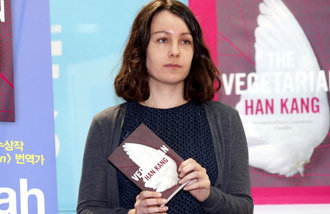Retired couples life in the 100-year life
Retired couples life in the 100-year life
Posted January. 13, 2016 08:05,
In Japan, Wasamo refers to a retired husband who boldly wants to follow his wife whenever she goes out. There is also a Japanese term referring to an illness suffered by a wife who has a retired husband. Korean housewives call a husband who eats three meals a day at home, three-meals-at-home husband. According to a paper that has tracked 91 retired couples since 2006, 28.6 percent of retirees and 40.7 percent of their wives found their health got worse a year after retirement. The primary cause of harm done to the wives was the three-meals-at-home man stress.
Some say that hours that a retired husband spends at home are proportionate to the level of stress felt by his wife. It is particularly so for wives who have Wasamo husbands who believe their spouse is the only window to social activities. A retirees wife confess that she did not prepare for more time to spend together after retirement and the lack of interactions that they have built is (a problem), not the lack of money. The confession reminds us of the importance of psychological preparation of couples as well as that of financial one.
Except sleeping, retired couples spend four hours and 10 minutes together per day and spend most time on watching television. It was the outcome of the survey of 600 retirees aged between 60 and 74 released by the Mirae Asset Retirement Institute on Monday. It is notable that those who want to spend less time with their spouse (34.9 percent) was six times more than those who want to spend more time with their spouse. It is quite understandable that a husband keeps nagging his wife without helping out house chores.
Now, a married couple should live more than three decades together as we face an era where people live an average of 100 years. At retirement, a new rule apply to married couples. Give each other physical and emotional space, says Dr. Sarah Yogev, an American psychologist, in her book A Couples Guide to Happy Retirement. For happy retirement, couples should respect each others privacy and give freedom. It is up to each couples decision whether to make their post-retirement life a paradise or a hell.
The institute surveyed 505 retirees aged between 60 and 74, and the result was released in the 24th retirement report on Tuesday. As many as 59.2 percent of the respondents said that they are satisfied with the current level. However, much more respondents (34.9 percent) wanted to reduce time that they spend with their spouse than those who want to spend more time with their spouse (5.9 percent).
Retirees pass time doing static activities, mostly watching television (77.6 percent), doing house chores (8.7 percent) and having conversations (7.9 percent). Only 3.2 percent said they spend time together for a hobby.
More respondents said they want to go out together (21.2 percent) while only 4.8 percent said they would like to spend less time together. One out of three retirees (33.4 percent) who do not share a hobby with their spouse wants to have one. Retirees have a strong desire to do dynamic activities such as a hobby or a sport when they spend time together with their spouse,said Jeong Na-ra, an analyst at the Mirae Asset Retirement Institute. Meanwhile, one out of three retirees who take care of their grandchild said that their social life is being limited by childcare. Around 8.3 percent said they have conflicts with their own children over raising their grandchild. On average, 342 retirees who live remotely from their children contact their children twice a week and meet three times a month to eat out (82.2 percent).
mskoh119@donga.com
Headline News
- Biden authorizes Ukraine to use long-range missiles against N. Korea's troop deployment
- Democratic Party criticizes court in charge of Lee’s case for ‘judicial murder’
- Jannik Sinner achieves remarkable success on tennis court
- Xi Jinping asks Yoon to visit China first
- Chey Tae-won appointed as chair of APEC CEO Summit







